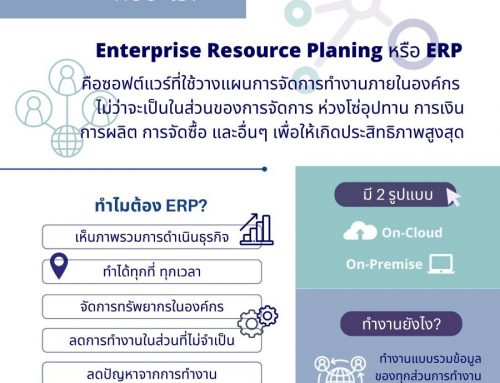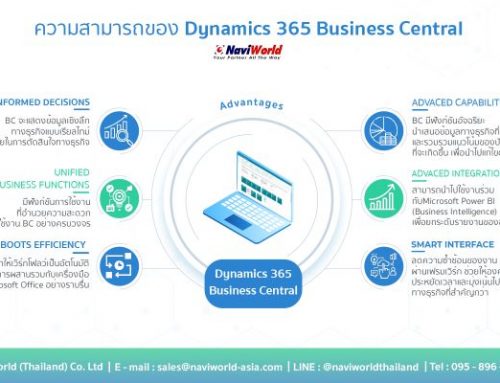Enterprise Resource Planning (ERP) software is excellent for many industries, such as the manufacturing or wholesale sector, but what about the e-commerce industry? With Thailand striving to be the hub for e-commerce in Southeast Asia, there are plenty of business opportunities when making the switch to e-commerce that businesses in Thailand can tap on. Furthermore, the threat of the pandemic has made it crucial for businesses to have an online presence or platform for consumers to continue purchasing even when brick and mortar stores are not in operation.
With the e-commerce set to lead the retail sector even after the pandemic, let’s take a look at how organisations or small and medium-sized businesses in the e-commerce industry can stand to gain from ERP implementation.
1. Save Time With Automation
With ERPs, you can afford to add a wide range of plugins to ensure a smooth workflow for your staff and a simpler, more pleasurable user experience for your customers.
Plugins such as Lazada and Shopee Connector for Microsoft Dynamics 365 Business Central allows you to manage all data related to your business in one single place. You can manage your inventory and monitor stock availability automatically with the ERP without having your staff update the inventory manually.
With increased automation for your business, you can afford to free up your staff and increase more manpower for brick and mortar shopfronts or reallocate manpower to create more revenue streams for your business.
2. Accurate Data
After the introduction of increased automation to your business, you can expect to rid your stocktaking of human error as compared to manual data entry and more accurate information displayed on your e-commerce platform. If you have a brick and mortar retail store along with an e-commerce platform, your website can also accurately display in-store availability if stocks are unavailable for online orders. With the help of ERP solutions, no longer will you receive customer complaints about items selling out when they should not be or customers placing orders for items that are already out of stock.
3. Efficient Order Fulfillment Processes
These days, customer satisfaction is not just about product quality. It seems that the entire e-commerce experience, on the whole, is becoming equally as important when it comes to maintaining customer satisfaction as well, which brings us to the topic of e-commerce order fulfilment processes.
The order fulfilment process refers to the process whereby e-commerce businesses receive orders, process orders, pick up the order, pack orders and then fulfil orders by sending them to customers. And shoppers are demanding higher efficiency, quicker gratification, and it is high time e-commerce businesses utilise the many functions of an ERP to help get the most out of their online store.
With ERP, your order fulfilment cycle can be streamlined by using efficient plugins or add-ons for your business. For example, when a customer places an order on your website, the order comes through immediately and can be viewed by various departments in the company. Orders can also be coded according to statuses, or if a particular product has to be ordered from another manufacturer, its expected delivery date will be displayed as well. This way, you can reduce any instances of late delivery, unsatisfied customers or unfulfilled orders and focus on creating a pleasant shopping experience for your customers.
Improve Your E-Commerce Business with NaviWorld
Still not convinced about implementing ERP solutions for your retail e-commerce business yet? Speak to any of our professional consultants here at NaviWorld, and we can address any queries that you might have about ERPs or Microsoft Business Central.








